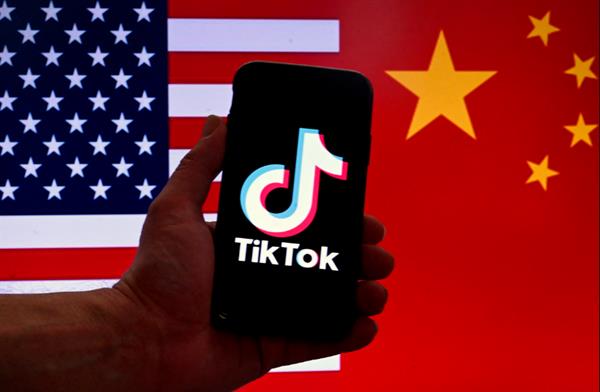US Senate passes bill to ban TikTok if its owner ByteDance fails to sell it.
The bill passed by the US Senate mandates a nationwide TikTok ban unless ByteDance, its Chinese parent company, divests its ownership. It now awaits approval from President Biden.

On Wednesday (April 24), the United States Senate approved contentious legislation that could result in the prohibition of the immensely popular social media app TikTok in the country if its parent company, ByteDance, based in China, fails to sell it. This bill is now set to reach the desk of US President Joe Biden, who has already indicated his intention to sign it into law once cleared by Congress.
Upon President Biden's signature, ByteDance will need approval from Chinese officials to execute a forced sale, a move that China has vowed to oppose. This measure targeting TikTok was included in a $95 billion foreign aid package, which also encompasses military assistance to Ukraine, Israel, and Taiwan, and has received congressional approval.
The legislation garnered significant support from lawmakers, with 79 Senators voting in favor and 18 voting against it. TikTok has faced scrutiny not only for its addictive user experience but also due to concerns regarding its Chinese ownership by ByteDance.
The push to ban TikTok stems from US lawmakers' apprehensions about data sharing between TikTok or ByteDance and the Chinese government, raising concerns about the potential for TikTok to become a repository of data on millions of US users.
In response, TikTok issued a statement expressing disappointment with lawmakers' actions, framing it as an infringement on free speech rights and a threat to the US economy.
Once signed by President Biden, ByteDance will have 270 days to divest TikTok. If divestment appears imminent at the end of this period, an additional 90 days may be authorized by the president to finalize deals.
President Biden has signaled his support for the bill, emphasizing the urgency of providing aid to Ukraine, Israel, and other regions affected by conflicts and disasters.
Potential buyers for TikTok include Microsoft, Oracle, and private equity groups, although the complexity of the sale process, particularly concerning TikTok's core algorithms and software, poses challenges.
If the bill becomes law, TikTok's competitors, such as Meta (formerly Facebook), stand to benefit, with projections indicating a potential migration of TikTok users to platforms like Instagram and Facebook. Google may also see advantages resulting from the ban.